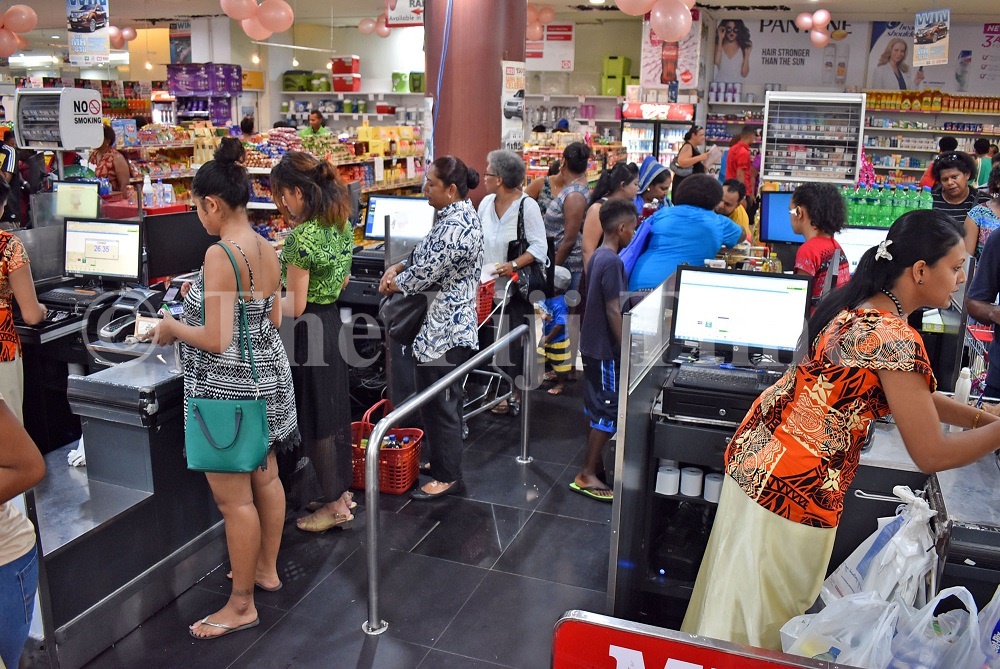Talk of possibly removing VAT exemptions has emotions around the country running at a high, with parts of the population split on the best way to cut costs, boost revenue while lowering Fiji’s debt to GDP ratio.
However, the issue seems more complex than it seems, and as businessman Robert Lee notes, the impacts of exempting items from VAT remain more far-reaching than the average person realises.
Mr Lee, who was a key part of two committees that designed Fiji’s VAT system in the 90s, said the VAT exemption aided and greatly enriched a small number of producers and importers.
Additionally, he said this “created many losers”, and also inhibited the development and well-being of a large segment of the community.
According to Mr Lee, the decision also financially induced many families, especially the indigenous iTaukei, to change their dietary habits.
“It created the financial inducement to move from traditional foods towards imported high glycemic index (GI) carbohydrates and foods high in fat, salt and sugar,” he said.
“It helped create a NCD crisis, that is now tearing the social fabric apart. Rural subsistence cum commercial farming of traditional foods was hit hard, competing against subsidised high GI foods.
“Tonnes of used consumer food packaging also continues to be thrown into the environment.”
Mr Lee explained that there were other avenues of taxes which Government could consider, as there were three fundamental sources of tax revenue: income, consumption, and wealth.
He said Fiji only generated taxes from the first two.
“Perhaps it’s time to look at a threshold wealth or property tax as the third major source of tax revenue. Policymakers often find it easier and will always have the “right excuse” to tax the poor majority rather than the rich.
“A threshold wealth or property tax will most likely be dismissed on the grounds that the timing is not right, and it never will be.
“The whole approach to fiscal policy can only change if there is a fundamental shift in the economic philosophy that underpins the economic vision that the leaders have for the country.
“Real and significant positive change won’t happen if the underlying motivation, assumptions, beliefs, and philosophy that drives the policy agenda remain the same.”
Mr Lee said while he strongly believed the tax exemptions needed to be removed immediately, he was also of the opinion that it should not be the source to increase government revenue.
“Those advocating for the poor must insist that the removal of the VAT exemption be revenue neutral, that it be simultaneously replaced with a program of targeted income support for the poor.”
Who is Robert Lee? A name that rings a bell to many of Fiji’s business leaders and those in the political establishment, Mr Lee was a familiar face and voice in Fiji’s economic policy agenda in the late ’80s and ’90s.
He was the Founding President of the Fiji-New Zealand Business Council which he helped establish at a time when the bilateral relations between the two countries was under considerable stress.
He served on numerous government boards and committees including the two VAT committees that oversaw the design, implementation and fine tuning of the VAT system, before the exemptions were brought in.
He was a Fulbright Scholar at Harvard University and is also an alum of the leadership program at the Walsh School of Foreign Service at Georgetown University.
He was the Founding President of the Fiji-New Zealand Business Council which he helped establish at a time when the bilateral relations between the two countries was under considerable stress.
He served on numerous government boards and committees including the two VAT committees that oversaw the design, implementation and fine tuning of the VAT system, before the exemptions were brought in.
He was a Fulbright Scholar at Harvard University and is also an alum of the leadership program at the Walsh School of Foreign Service at Georgetown University.



